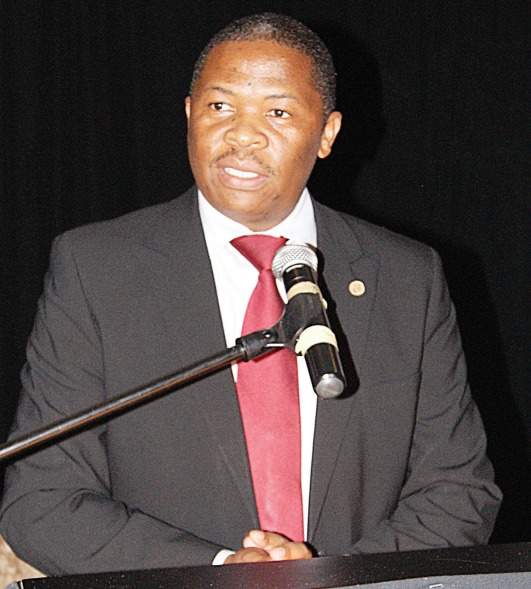By Phephile Motau and Sifiso Sibandze
The organisation for Economic Cooperation and Development (OECD) has retriggered an undesirable thought in South Africa’s Minister of Finance’s mind Enoch Godongwana of hiking the VAT, an imminent move that could put more strain on both South Africans and emaSwati. The Organisation for Economic Co-operation and Development (OECD) is an international organisation that works to build better policies for better lives. Their goal is to shape policies that foster prosperity, equality, opportunity, and well-being for all.

A successful increase in VAT is only celebrated by the governments as it is viewed as the easiest means to boost revenue. In its 2022 economic survey of South Africa, the OECD recommended that South African authorities should raise the VAT by 2.0 per cent from 15 per cent to 17 per cent. It also recommended broadening the corporate tax base and personal taxes to support the government’s revenue.
South Africa’s VAT rate is relatively low, the OECD said, meaning there was additional scope to raise revenue through this mechanism. According to the OECD, lifting the rate by two percentage points could raise VAT revenue by around one per cent of GDP.
Due to the connectedness of Eswatini economy with that of South Africa and the binding trade agreements between the two economies, the Kingdom had always emulated the republic in increasing VAT. South Africa last increased its VAT rate in 2018 by 1.0 per cent from 14 per cent to 15 per cent, a move that compelled Eswatini to follow suit. The then Finance Minister told Parliament that the government was forced to effect an increase because of standing trade agreements between the two economies.
Current Minister of Finance Neal Rijkenberg hinted in 2020 that the government would effect an increase if South Africa does, but that did happen. By then, South Africa was contemplating increasing the VAT from 15 per cent to 16 per cent. “We can’t be having a different VAT to South Africa due to trade agreements, so we will also be forced to align ours with theirs,” Rijkenberg was quoted by the print media to have said.
Dumisani Masilela, erstwhile Commissioner General of Eswatini Revenue Service (ERS) now IMF’s AFRITAC East Office Revenue Administration Advisor said the alignment of Eswatini’s VAT to that of South Africa “is key to the collection of imported VAT in particular.” “You will recall that we have a VAT refund agreement with South Africa, which allows them to pay us VAT paid in that country. That obviates the need for anyone importing goods to pay at the border, which would have to be the case without this agreement. Employing a different rate from South Africa would unravel this arrangement, which would begin to compromise compliance again,” Masilela said.
Masilela went on to say that the VAT rates in the region range from as low as 12 per cent in Botswana to a high of 17 per cent in Mozambique. Other countries have used higher rates while others have employed multiple rates for some specific goods like electricity. “The 15 per cent is a good rate for Eswatini in my view because it sort of takes the middle path, not too high and not too low either,” he said.
Another tax expert who asked that his identity not be disclosed said Eswatini would be compelled to increase the VAT should South Africa heeded to the OECD’s recommendations. The expert said it can be extremely difficult for the ERS to administrate imports as this could result in noncompliance which can be costly to the taxman. “Based on the fact that Eswatini imports over 80 per cent of its goods and services from South Africa, that would mean companies and individuals would have difficulty to claim their VAT paid in South Africa as that would become expensive for the ERS and that could cause intricacies when declaring at the border,” the expert said.
The concern raised by the OECD, however, was that increasing the rate would hurt the poor and widen inequality. This sentiment was shared by Eswatini Consumer Forum’s Chairperson Mandla Ntshakala. He said a hike in VAT could catapult a sizeable majority of emaSwati, mostly the vulnerable groups to abject poverty and exacerbate a hunger crisis in the country. “Food prices are endlessly soaring and an increase in VAT could worsen the situation, making basic commodities unaffordable,” Ntshakala said.
“To mitigate any potentially adverse distributional effects and to increase the political acceptability of a further VAT rate reform, it is preferable that any increase in the standard VAT rate is accompanied by increased transfers to low-income households and that efforts are increased to reach all low-income households,” the OECD survey reads.



